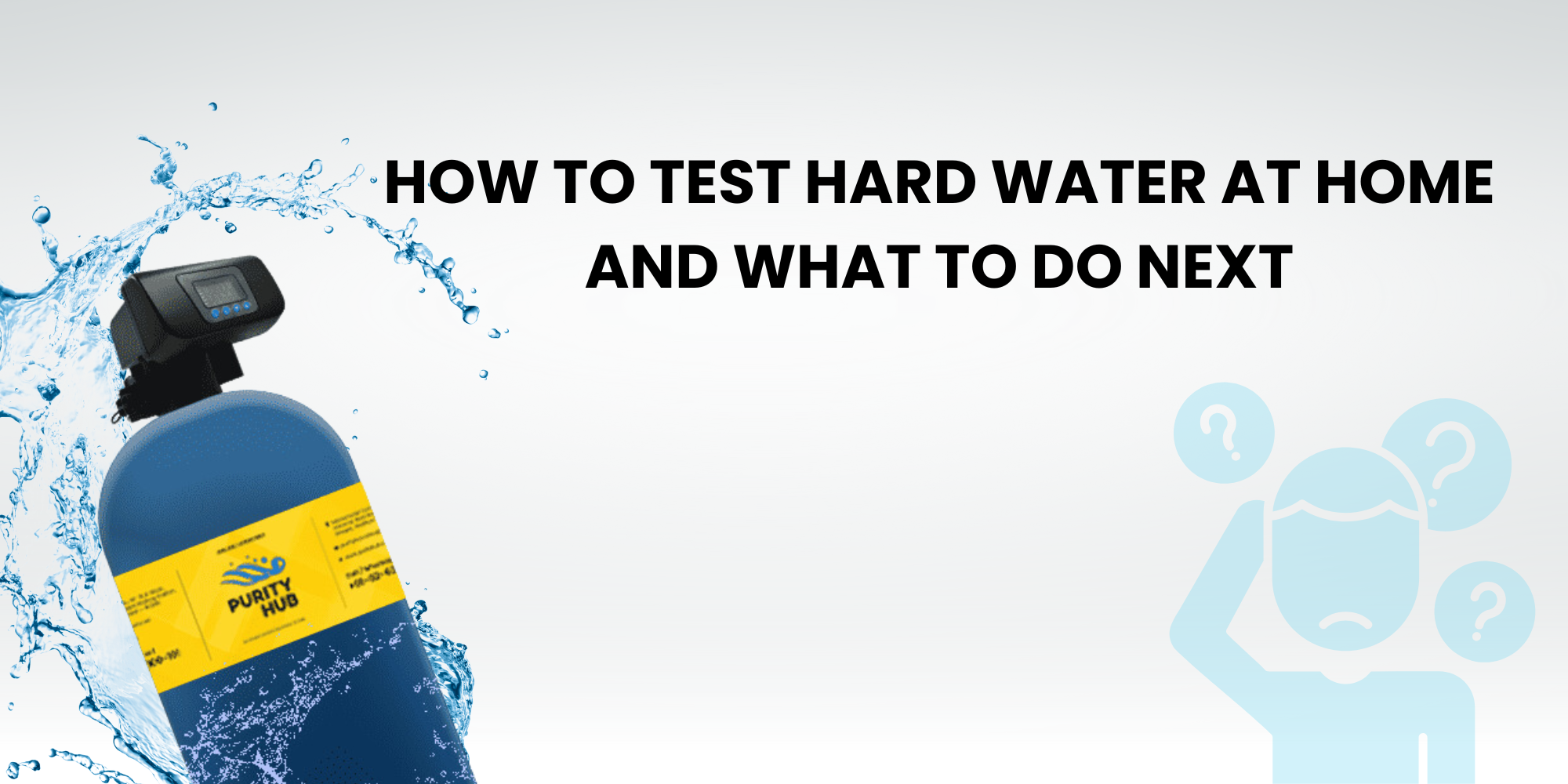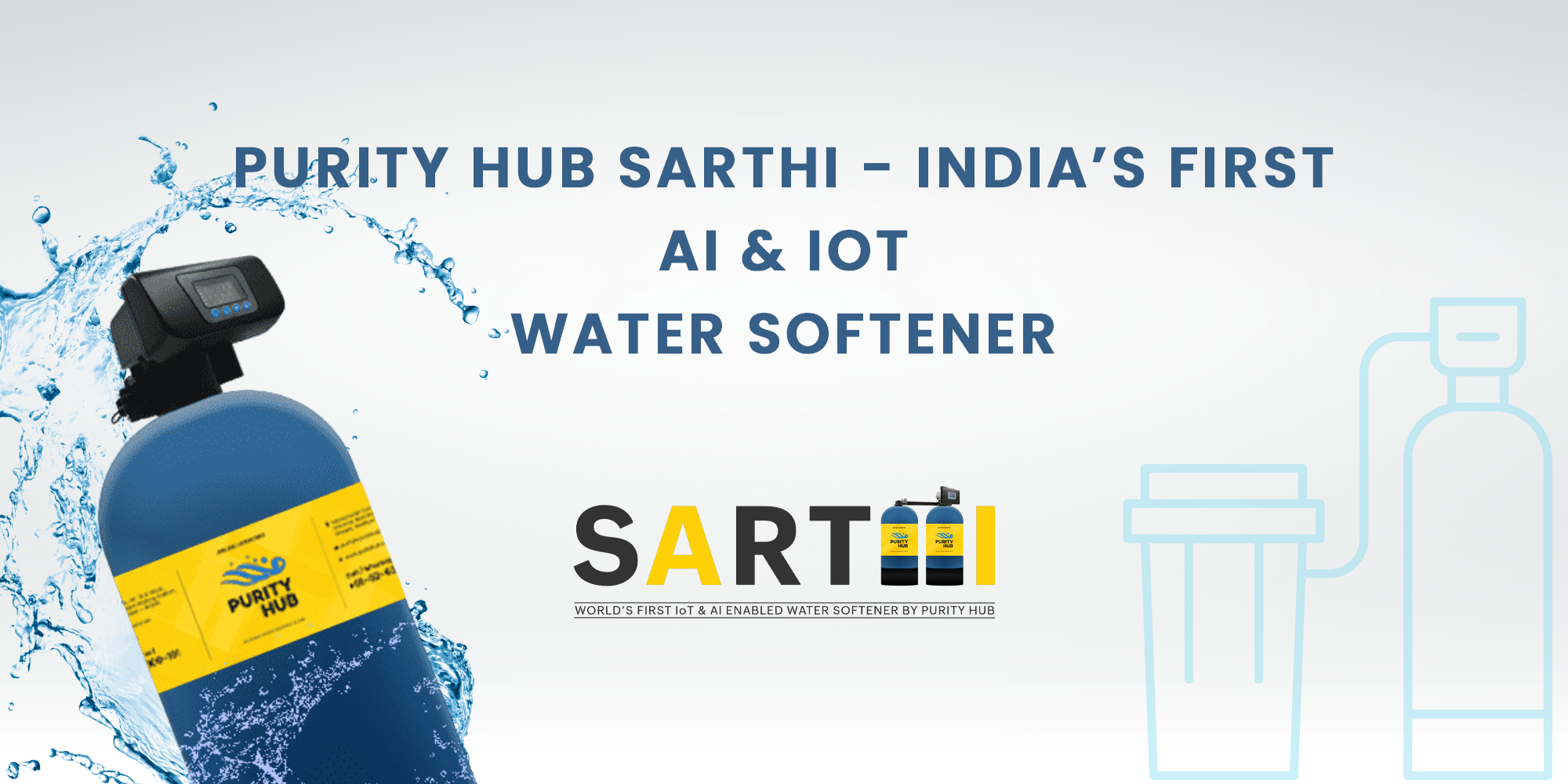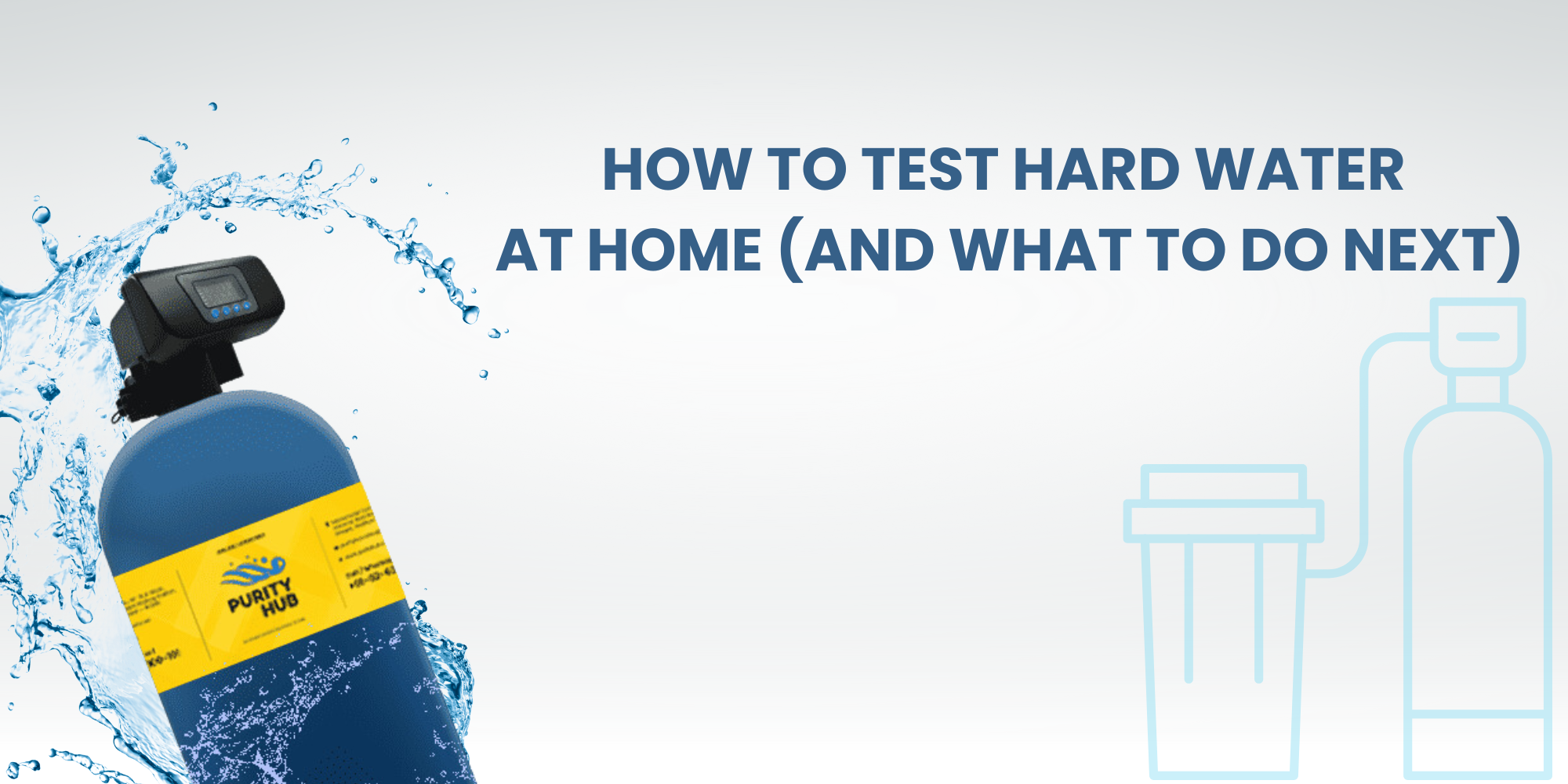
SUMMARY
Hard water may not look like it would hurt, but it's going to dry out your skin, fizz up your hair, encrust your appliances, and keep your cleaning solutions working day and night. In this blog, we take you through how to test for hard water from the comfort of your own home using easy, play-friendly methods—such as the dish soap test, bar soap test, or test strips—to ensure that you can gain a clear understanding of your water's mineral content. After finding out your results, you can select the correct solution, whether it is a compact water softener for shower hard water, a household water softener for the entire house, or a combination system which filters and softens simultaneously. It will reward you with healthier skin, brighter hair, longer life for your appliances, and even lower soap and energy costs—making water testing an easy step with fantastic daily benefits.
1. Why Checking for Hard Water Isn't Nerd Stuff
Come on—when water coming out of your tap tastes like that strange, chalky stuff, leaves a soap scum buildup the size of a medal of honor on shower walls, or dries out your skin more than your sense of humor in a meeting, something is wrong. That "something" is most likely hard water.
Testing your home water isn't a weird science experiment—it's the start of decisions that will keep your skin smooth, your appliances humming, and your locks under control. So let's go step by step how to test for hard water in the home, then what to do when you know!
2. DIY Hard Water Testing: Easy Tests for Everyone
If you’re wondering how to test hard water at home, you’ll be delighted to know there are some really simple ways that don’t require lab coats or complicated devices. Here’s the fun part:
Dish Soap Test
Take a clear container and fill it with tap water about 3/4 full. Add a tablespoon of dish soap, cap it, and swirl it. If the water foams into lots of bubbles and the product of the reaction remains clear, you probably have soft water. If the water is cloudy, and/or if the bubbles disappear quickly, you have likely hard water (Yikes). Simple, easy, and a little kitchen science-y.
Soap Bar Test
Get yourself a bar of plain simple soap (no gels, no lotions). Run it under the faucet so it gets wet for a few seconds, then try to lather. If it will not lather nicely and if you have just a slippery presente on your hands, you are likely dealing with hard water. Bonus: your angry soap is trying to warn you!
Dry Test Strips
If you're feeling high-class and actually want to get a number, you can buy water hardness test strips that will yield a GPG or ppm reading. They are easy to use and not very expensive—just submerge, wait one second, and compare the color to the chart.
They won't be expensive and will still give you an idea of whether a home hard water softener is in your future.
3. Reading Home Test Results Like a Pro
If you've completed one or more of those tests—what now? Here's what to do with the results so you can move on:
Soft water: If your dish soap doesn't fade too fast and your bar soap is clean, foamy, and no residue, chances are you have soft water (or slightly hard water)—good news! Your skin, hair, and appliances likely are healthy.
Moderately hard water: A slight coating or a small amount of suds? That's middle-of-the-road hard water—most definitely mineral-charged but nothing to panic about. A whole-house water softener is probably overkill here, but a shower hard water softener or kitchen faucet hard water softener could be a good, spot solution.
Very hard water: If soap will not stack up in sheets but instead disappears in flat sheets, suds disappear instantly, and test strips read high GPG or ppm, your water is harboring those awful minerals. That is where a good home hard water softener—the one running on ion-exchange or catalytic resin—can rescue your skin, hair, and life of your household appliances from suffering.
4. Choosing the Right Solution: What to Do Next
After you've decided your water is on the harder side, the next question is: now what? Here are a couple of clever solutions:
Point-of-use softeners or filters: They're small, easy to install, and cheap for specific areas like your shower or kitchen faucet. They strip mineral content and improve your everyday water interaction without treating your whole home.
Whole-house (in-line) systems: In the ideal situation, you receive very hard water, or you're fed up with mineral spotting and dry skin aplenty all over—wear and tear on your appliances, clogged kettles, shower scum, etc. In either case, a whole house water softener system is well worth serious consideration. So-called whole-house systems treat water as it first enters your home and give you soft water from all of your faucets.
Hybrid water softening-plus-filtration systems: Some intelligent systems integrate carbon filtration, sand filtration, and softening into a single unit—treating odors, impurities, and hardness at the same time. Employing the hybrid Purity Hub designs that can be bought for household use, these are designed to make treated water feel softer on your skin, have a better scent, and preserve your appliances from mineral wear, all as part of a normal home plumbing system.
5. Pre-Purchase or Installation Tips
Considering a home hard water softener or mini water softener for hard water unit? Here is a concise, handy checklist:
Find out your level of water hardness—that initial test tells you if you need an entire softener or just a shower filter.
Take note of maintenance—some designs have salt top-ups at regular intervals, media replacement, or cleaning. You don't want to forget and receive ineffective treatment.
Watch for added features — clever things such as low-salt alert, digital monitoring, or blended media (e.g., carbon + resin) can make your life SO much easier.
Consider warranty and service — well-engineered home systems usually come with warranties, service programs, or expert advice so your system hums along for years to come.
6. Surprise Bonus Benefits You Can't Live Without
A hard water test and reaction to it is not merely fixing your issues. It's got some fantastic surprises too:
Paradise for hair and skin: Finally—no more that annoying, crawling feeling after your shower, and your shampoo can froth.
Longer appliance life: Your water heater, kettle, pipes, and coffee maker stay cleaner, i.e., less repair or replacement requirements.
Money saved on soap and detergent: Hard water causes you to use more; soft water, less. It's a cost savings in the long run.
Green advantages: A green use of an in-home water softener can mean less lost detergents, a decrease in energy bills because of heated water (as the scale formation slows kettles and boilers), and a reduction in replacement plastic bottles due to clogging and leaks.
In Conclusion
Home water testing of hard water is not a novelty test—it's your first real move toward a fresher, softer water experience. Choose simple tests, use good judgment when interpreting tests, and employ the right solution—a point-of-use softener or whole-house hard water softener for the house—to realize real advantages on a daily basis.
Advantages range from softer skin and more luxurious hair to smiling appliances and savings. And with design-based, plug-and-play, hybrid systems duplicated from entrepreneurs like innovators on the Purity Hub system, welcoming treated water into your home has never been easier.



